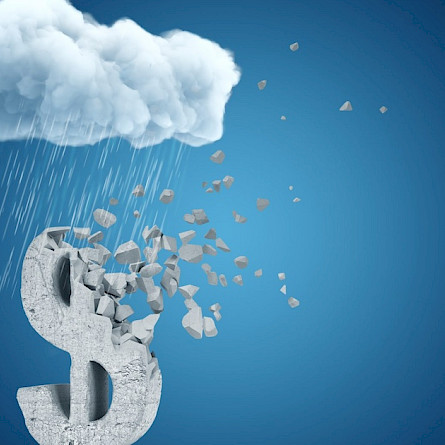I believe that comparing to the previous year is a good approach since there is often some seasonality between quarters. For example, a toy store will generate more revenue during the holiday season (October, November, and December) than in the first few months of the year (January, February, and March). It is therefore natural to want to compare the holiday season of 2023 with that of 2022.
During these conference calls, executives present all kinds of explanations to justify their performance. For example, revenue growth can come from signing new clients, opening stores, completing a significant acquisition, or launching a new product. When results do not meet expectations, we can hear justifications such as: the economy is slowing down, competition is fierce, or one-time expenses have weighed on the results.
After reading and listening to hundreds of these conferences, I realize that executives often attribute good performance to their actions, while poor performance is blamed on external factors. As Philippe Le Blanc mentioned in his recent blog, it is rare to see executives take the blame for poor performance.
During the last quarterly earnings season, in April and May, I noticed that several companies whose results were weaker than expected blamed the weather. It’s a classic excuse in investment, but I felt it was used more often than usual. It is true that January 2024 was harsh in some regions of North America. But is that enough to justify underperformance?
I believe that an investor should take the time to reflect on the excuses put forward by executives and draw their own conclusions.
There are obvious situations, such as an insurance company mentioning that the weather caused more claims than usual. A harsh winter will likely cause more road accidents. Similarly, an agricultural company will be affected by poor weather conditions.
Conversely, I am always a bit perplexed when I hear a furniture store chain or a pharmaceutical company claim to have been affected by bad weather. The weather can certainly have had an impact on their results, but such an excuse is sometimes a bit convenient. Is it really the weather that caused difficulties, or rather poor execution by the executives?
When I hear excuses from a company’s executives, I like to take a look at its competitors to see if they are facing the same difficulties. This allows me to determine if it is a generalized issue in the industry or specific to the company.
In my opinion, excuses from executives can be analyzed on two levels.
To illustrate this point, let’s take the example of a company that says it had difficulty recruiting, which led to lower-than-expected growth. The first level would be to conclude that the job market is tight. An analysis on the second level would lead me to compare employee salaries to those of competitors or to evaluate the firm’s reputation. At the first level, one might conclude an external problem, while the second level could potentially reveal an internal problem. Upon reflection, you will almost never hear an executive say that poor corporate culture led to high turnover and hiring difficulties. It is our job as investors to seek to understand the source of the problems related to excuses.
In short, excuses lead me to investigate and occasionally discover issues that are deeper than the initial excuse. Generally, we trust the executives of the companies we hold in our portfolio. However, we make sure to remain objective and verify the executives’ statements when the excuses seem far-fetched.
In sports, the excuses of a losing team are rarely well-received. The same culture should be adopted in the corporate world.
_______






